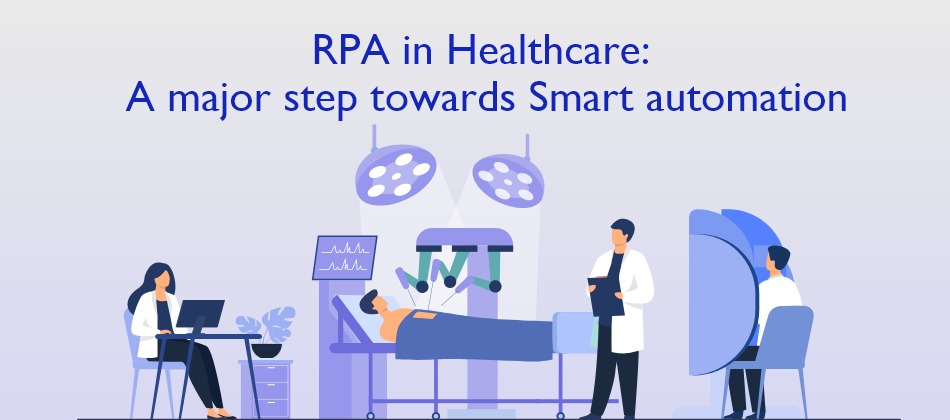
Robotic Process Automation (RPA) is the set of robotic technologies which is created to ease the work of human resources in the healthcare domain. Various Industries have adopted process automation for several purposes. These can indulge in multiple things: scan and draw conclusions on candidates’ resumes, generate automatic keyword-based responses, or withdraw the required information from reports and audits.
In this blog from b2c info solutions, we will concrete on providing you some relevant information and what RPA can bring to the healthcare field?
What does RPA mean for the healthcare industry?
Healthcare systems consist of numerous hectic tasks which require a substantial amount of data and resources such as the claim management module. This involves high costs of operations and slow processes.
By using the power of Robotic Process Automation, the healthcare providers can address serious issues making the processes faster thus, improving patient satisfaction.
Why RPA is an important healthcare industry?
Well, the answer to that question is to improve the delivery of healthcare services which is important for both public and healthcare providers.
Every industry has inefficiencies however sometimes technologies face the challenges that the healthcare industry poses on them. The finance services also undergo similar high levels of regulations but banks have better access to capital and have historically had higher levels of technology investment with Goldman Sachs CEO Calling Company as a technology company.
IT and healthcare services budgets all come across from healthcare providers’ earnings. With automation and fast implementation projects enabled by RPA, healthcare providers can avoid costly implementation of equipments and machines.
3 RPA Uses in healthcare
Wondering how healthcare providers leverage the power of RPA for the domain? Here are three uses of it.
What are the perks of RPA in healthcare?
Here are the top benefits that RPA offers in healthcare.
What you should consider for successful RPA Implementation?
As with any other technology, RPA can fall short due to several reasons among them lack of training, poor use cases, excluding key stakeholders, and much more.
For successful RPA implementation, we at b2c info solutions suggest you follow several best practices such as adequate research, educating staff, and reviewing security.
Also, consider RPA as a new technology with numerous growing chances. Organizations should determine what problem they actually solve through RPA and what might be the best for achieving the goal.
To know more about this evolving technology connects with our experts at info@b2cinfosolutions.com.




